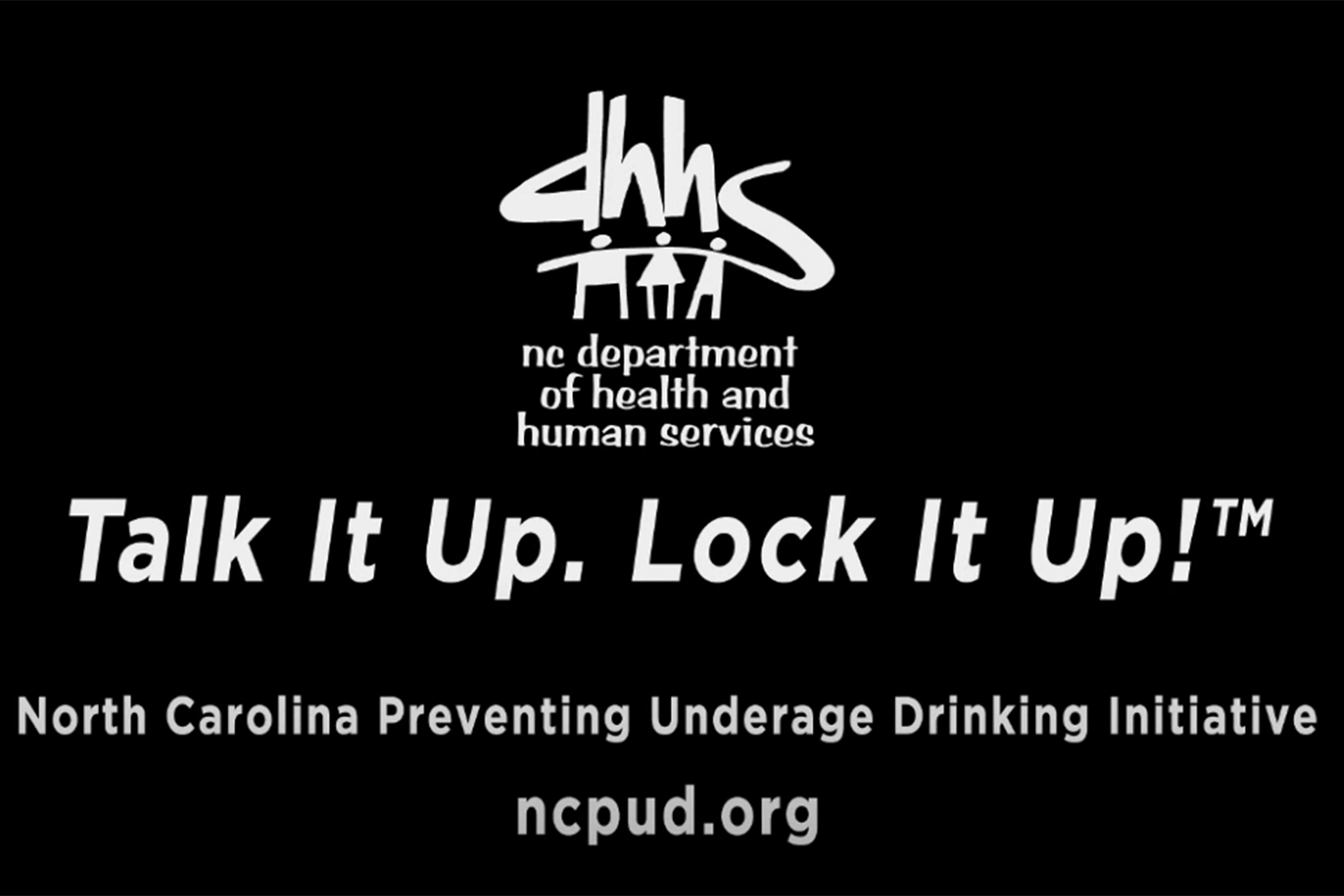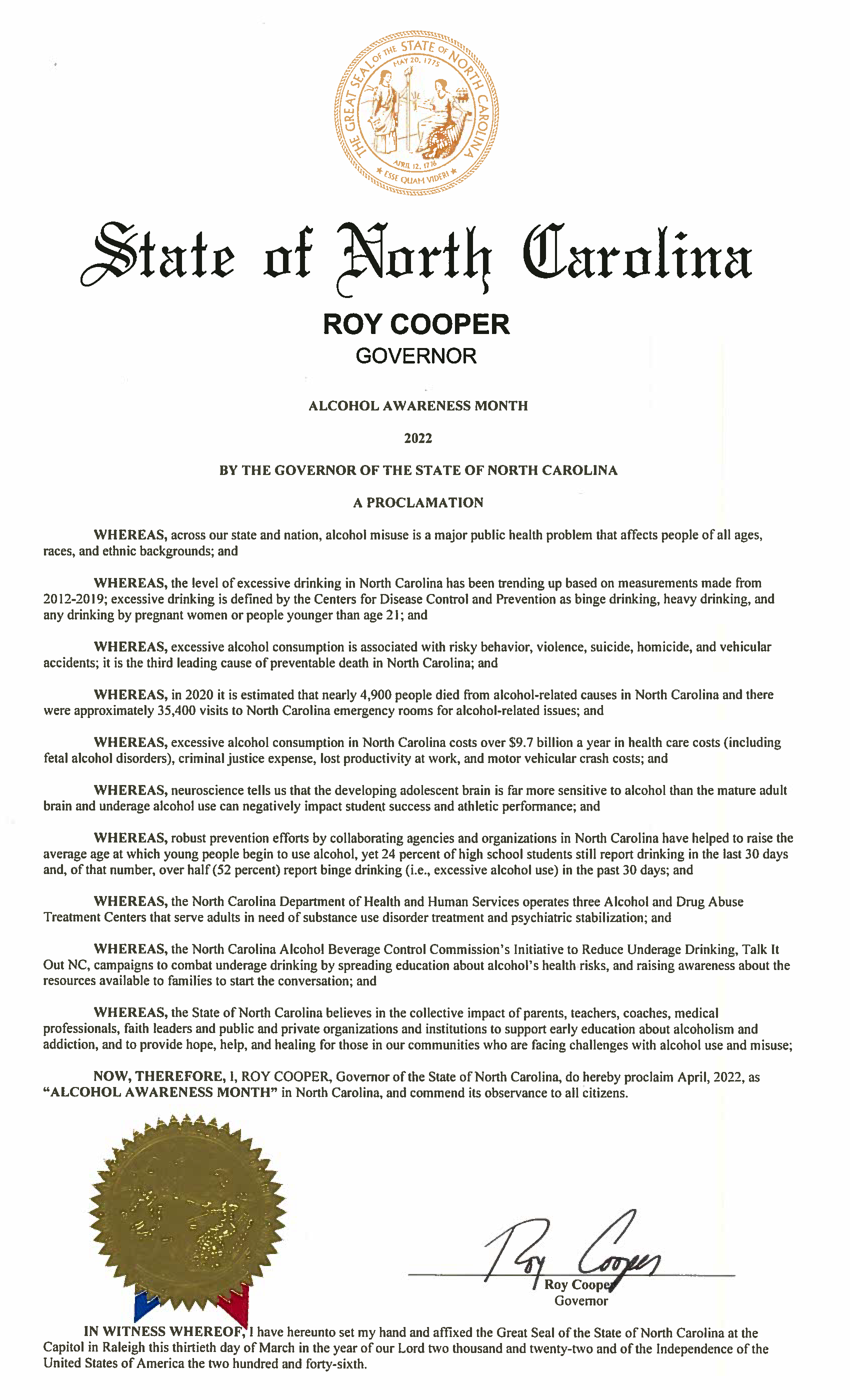
Talking To Your Child About Alcohol
Virginia L. Johnson, CPS
Substance Use Prevention Director
It’s that time of year again. The time when the flowers bloom and the air is filled with energy and excitement and new beginnings. As our children are spending more time outside and our teens are getting ready for prom and summer break, it is important to take time to talk to our children about the harmful effects of alcohol and help them build their skills and confidence to make healthy and safe decisions.
Why is it important to talk about alcohol with our teens?
Alcohol is the most used substance by youth and adults in the United States. According to the National Institute of Health’s 2020 Monitoring the Future Survey, 55.3% of high school seniors used alcohol in the past year. More teens die as a result of alcohol use than all other illicit drugs combined. More than one-third of teen traffic deaths are alcohol-related. Even non drinking teens are at risk if they get into a car with an alcohol-impaired driver. In the 2019 YRBS survey, 15.9% of Wake County High School freshmen reported riding in a car with someone who had been drinking.
In North Carolina, 12% of teens had their first drink of alcohol before the age of 13. Since the human brain is not fully developed until age 25, teens who start drinking before age 15 years are 40% more likely to develop alcohol dependence.
As a parent, these statistics can be overwhelming but there is something you can do. SAMHSA developed the Talk. They Hear You. campaign to reduce underage drinking by providing parents with the tools they need to talk with their children. Talk. They Hear You. recommends incorporating the following when you talk to your child about alcohol and other drugs.
1. Show you disapprove of underage drinking and other drug misuse.
Most teens (over 80 percent) say their parents are the number one influence on their decision to drink or not to drink. Even though teens may pretend like they are not listening, they are. They want to hear what their parents and other trusted adults think about alcohol. It is important to send a clear message on your expectations and your disapproval of alcohol use.
2. Show you care about your child’s health, wellness, and success.
It’s often easier to listen to someone when you know they have your best interest at heart. Let your child know why you don’t want them to drink. Let them know you want them to be happy, healthy, and safe.
3. Show you’re a good source of information about alcohol and other drugs.
Teens may hear a great deal of misinformation about alcohol and other drugs on the internet, in social media, from their peers, and in marketing. Be prepared with reliable sources of information from trusted sites such as www.UnderageDrinking.SAMHSA.gov and www.TalkItOutNC.org.
4. Show you’re paying attention and you’ll discourage risky behaviors.
Be engaged in your child’s life. It is much easier for a young person to make decisions to drink when they think no one will notice.
5. Build your child’s skills and strategies for avoiding underage drinking and drug use.
Help your child to be prepared to say no. Talking through scenarios and role-playing ways to say “no” help build your child’s confidence in knowing what to do when faced with a difficult situation. It helps when this conversation is ongoing. Talking often supports an open trusting relationship. Take advantage of opportunities in everyday life such as when a song references alcohol, a teen is offered a drink on a TV show, or a celebrity is in the news for making a poor decision while drinking to naturally bring up the conversation.
As a parent, it is not only important to Talk It Up. It is important to Lock It Up!

The home is the number one place youth access alcohol. It’s important to monitor and secure alcohol in the home. If you have alcohol in your home, ensure it is secured to prevent easy access by youth.
-
- Monitor the alcohol that is in your home by taking inventory and being aware of the amount and types of alcohol available.
- Ensure alcohol in the home is not easily accessible. Secure alcohol by placing it in a locked cabinet or closet. If you have a fridge for wine or beer, consider adding a fridge lock. Cabinet locks and fridge locks can be purchased at your local hardware store or online.
Take the pledge to Talk It Up. Lock It Up!TM and encourage others to take the pledge and start the conversations with your child today.
Want to do more? Spread the word. Share the following videos from Talk, They Hear You with examples of conversation starters on your social media.
Featured Poe Programs: #YouthCulture Series
Participants: Adults
This series of programs empower parents and other youth serving adults by taking a look at the world surrounding our youth and how it impacts their perceptions and behavior. Participants are equipped with tools and resources to support ongoing conversations with youth.
Other Poe Offerings:
-
- For the Health Of It! (Grades 6th, 7th, 8th)
- In the Know (Grades 9th, 10th, 11th, 12th)

Activity: Take the Talk It Up. Lock It Up!TM Pledge
It’s important to monitor and secure alcohol in the home.
-
- Monitor: Take inventory and regularly check any alcohol in the home.
- Secure: Make sure alcohol is not easily accessible by putting it in locked spaces.

References:
- Alcohol and the Adolescent Brain: Immediate Impairment, Long-Term Consequences.
- Centers for Disease Control. Rethink Your Drink.
- Centers for Disease Control. Youth Risk Behavior Survey 2019.
- Centers for Disease Control. Facts Sheets – Underage Drinking.
- North Carolina Preventing Underage Drinking Initiative
- SAMHSA. Talk They Hear You.

